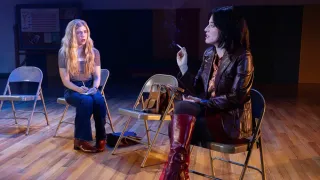April 21, 2017
Trump Calls 100-Day Assessment 'Ridiculous'
READ TIME: 1 MIN.
President Donald Trump says the 100 day benchmark often cited to measure a new administration's achievements is a "ridiculous standard."
Trump tweeted Friday, "No matter how much I accomplish during the ridiculous standard of the first 100 days, & it has been a lot (including S.C.), media will kill!"
Trump hits the 100 day mark in office on April 29.
Since taking office, Trump has managed to get a Supreme Court justice confirmed and is pursuing tougher regulations on immigration. But his health care bill didn't come up for a vote in the House and his travel ban was blocked in the courts.
The 100-day assessment started with President Franklin D. Roosevelt, because he got so much done.
Earlier this week, Trump declared that "no administration has accomplished more in the first 90 days."






